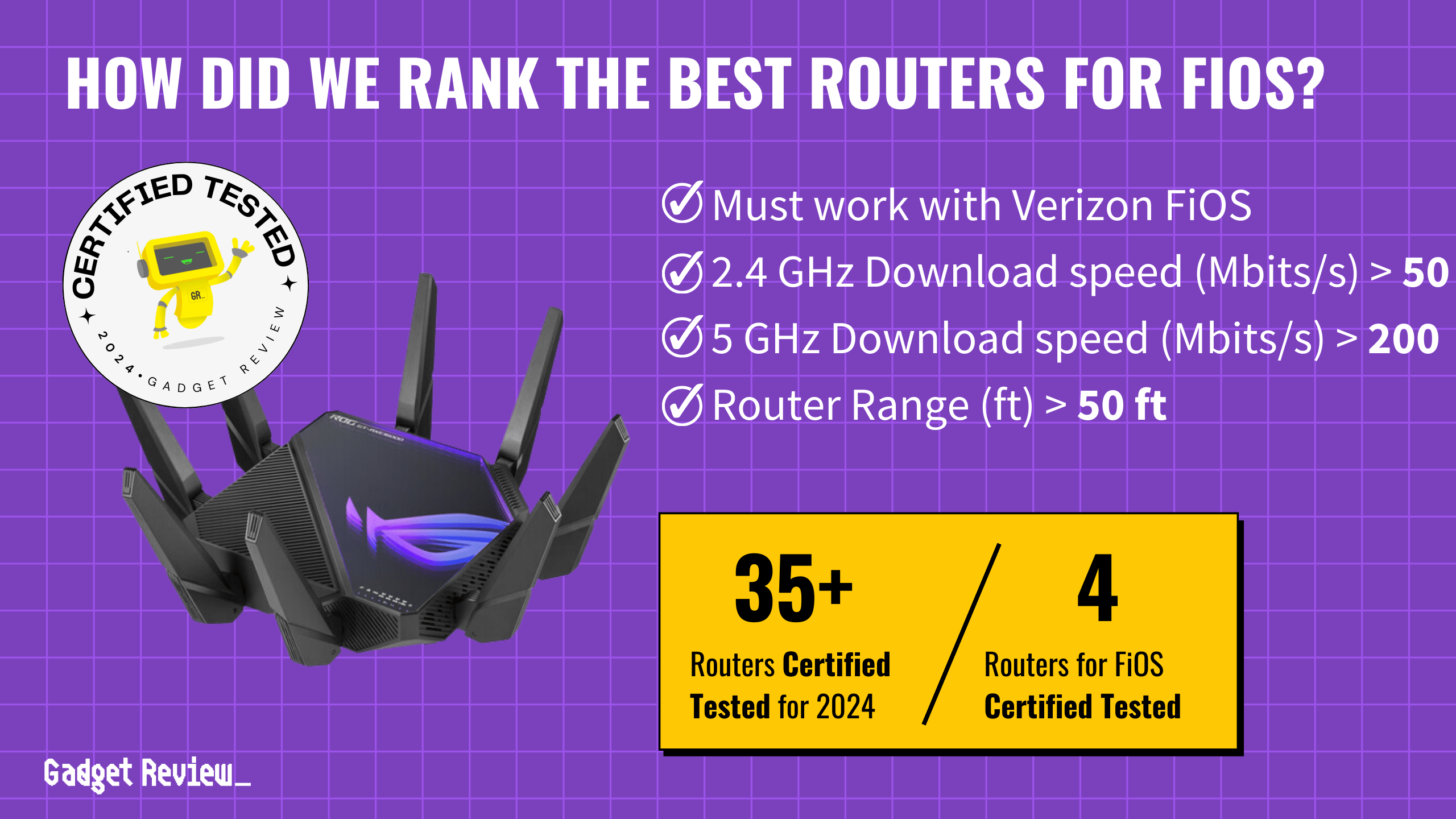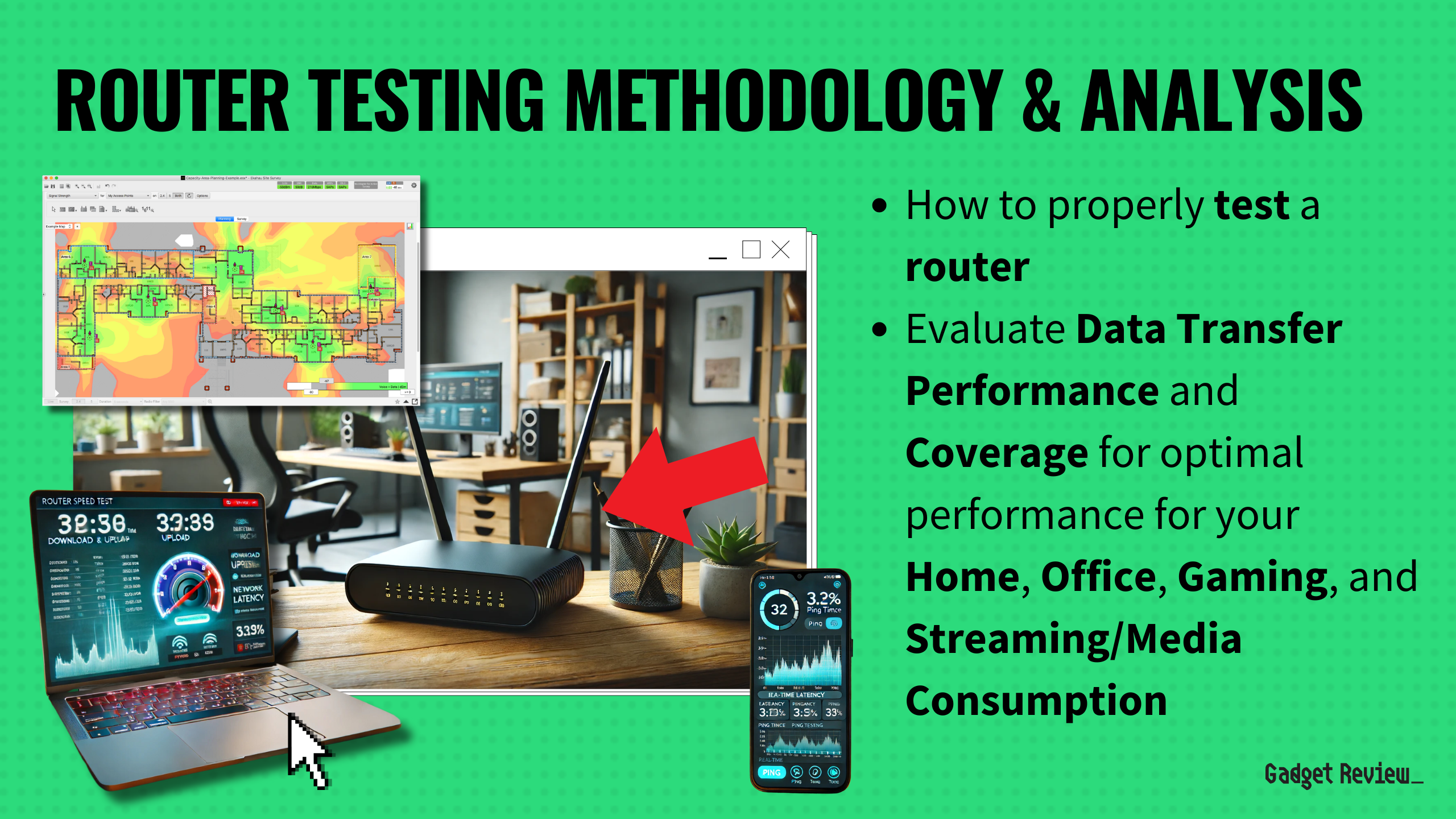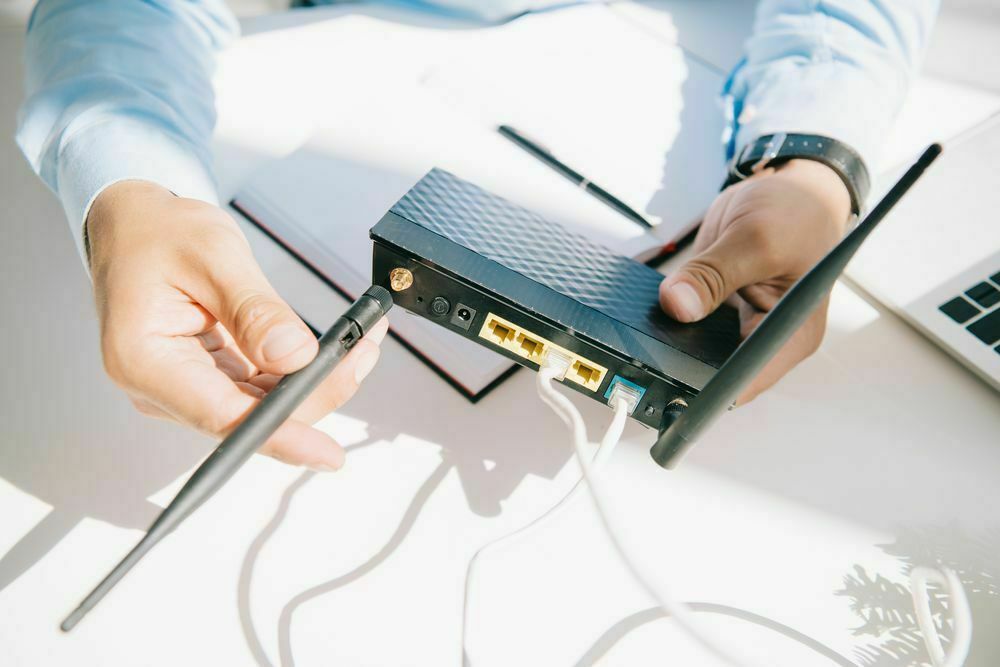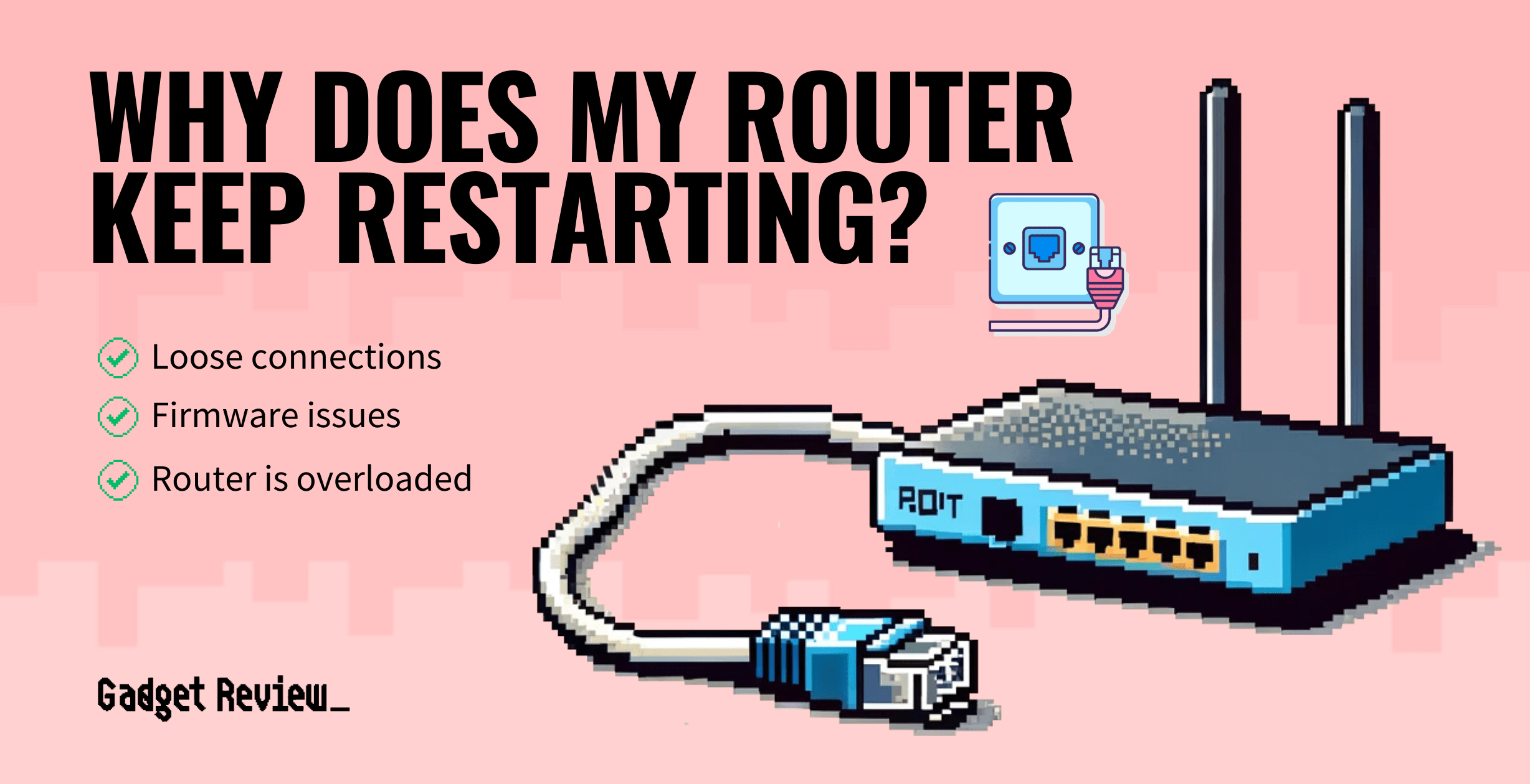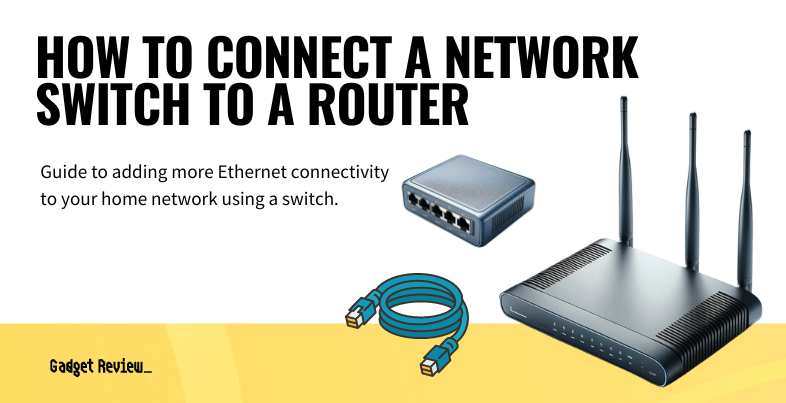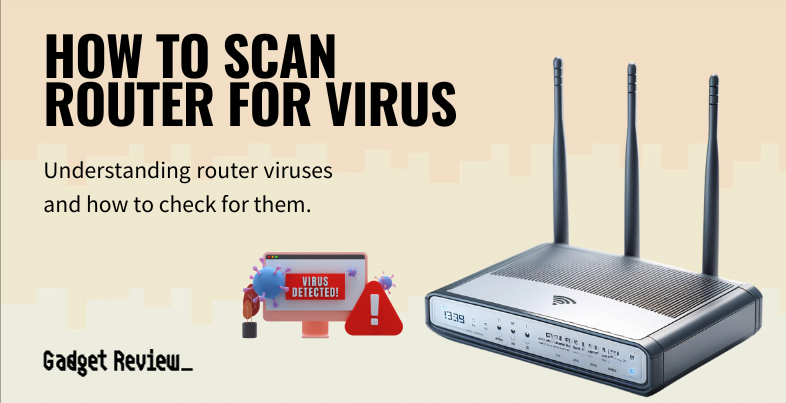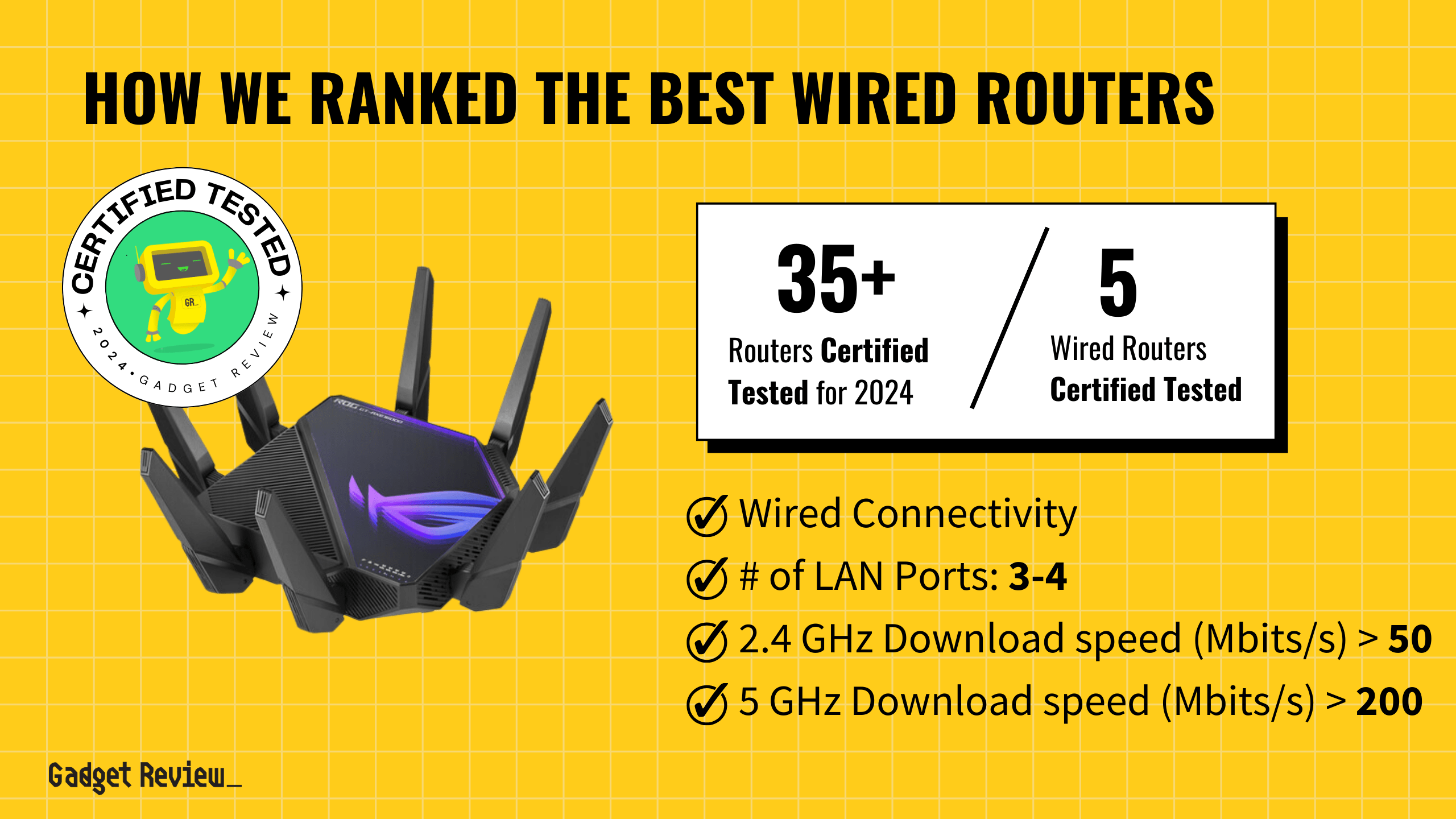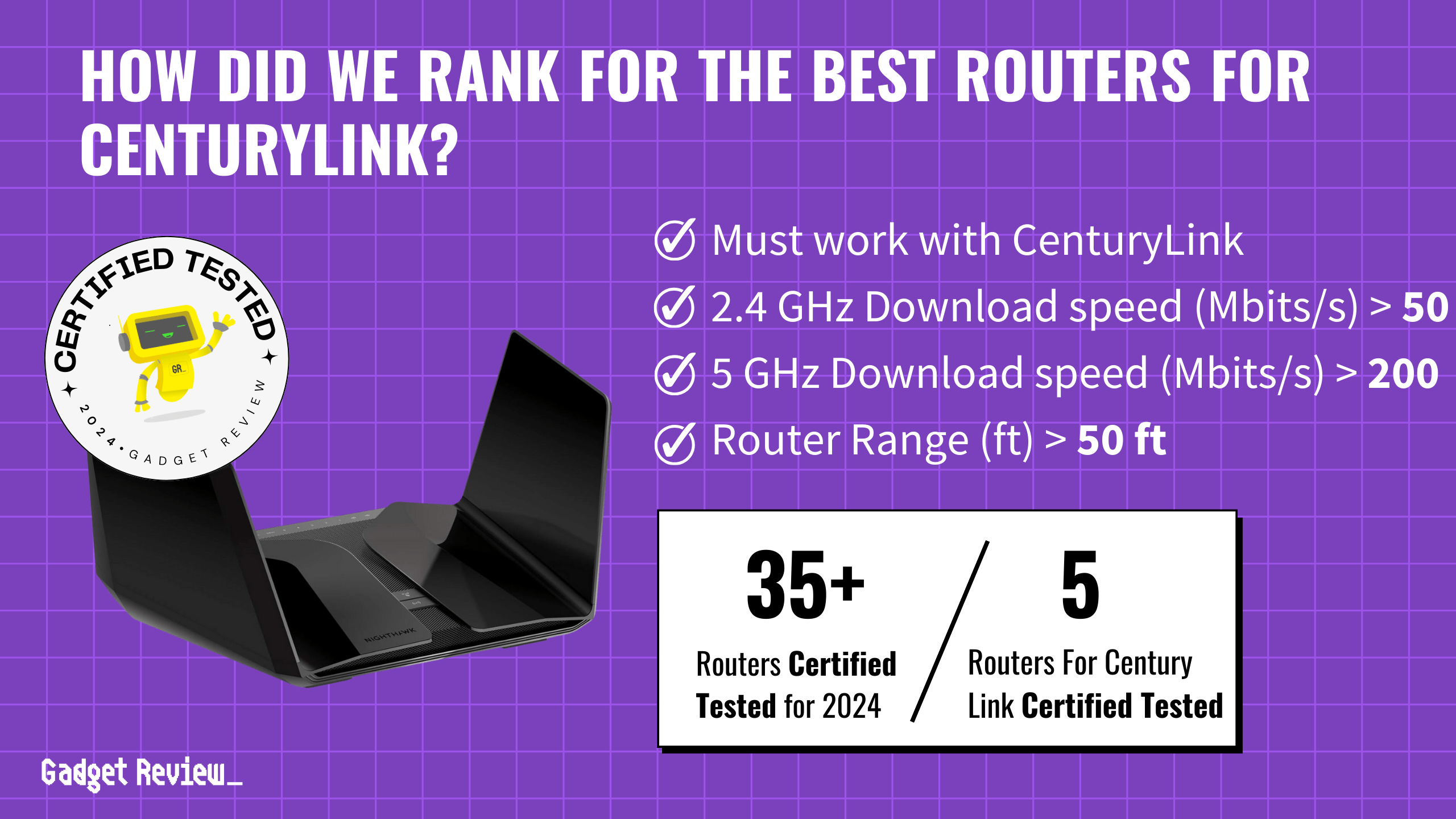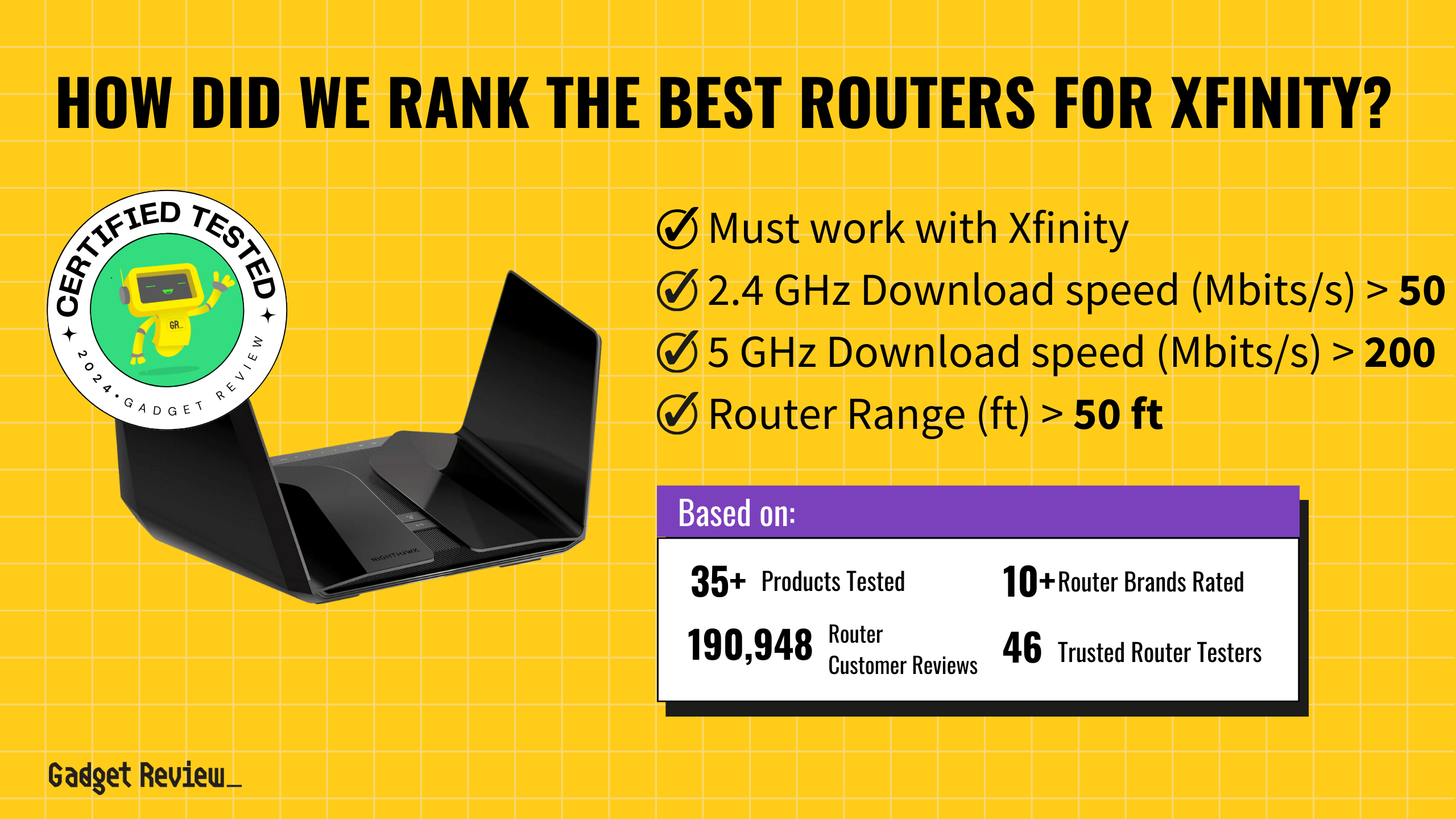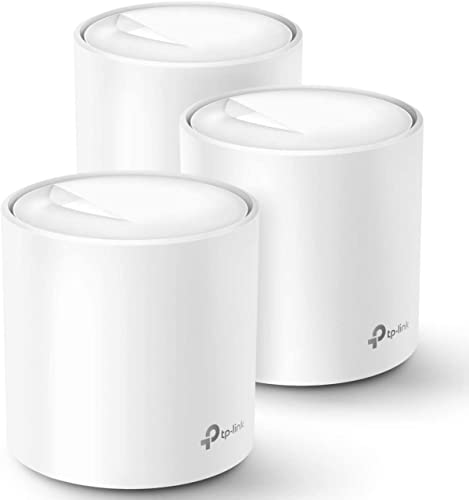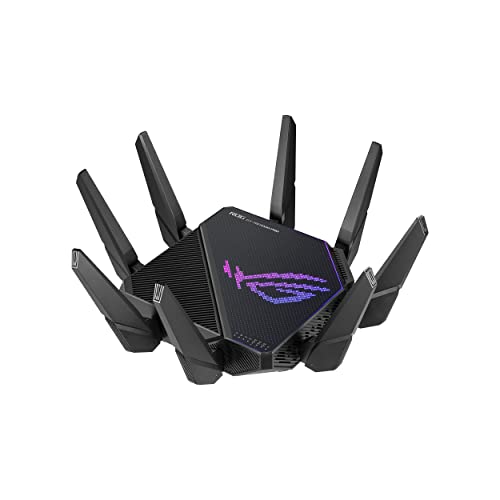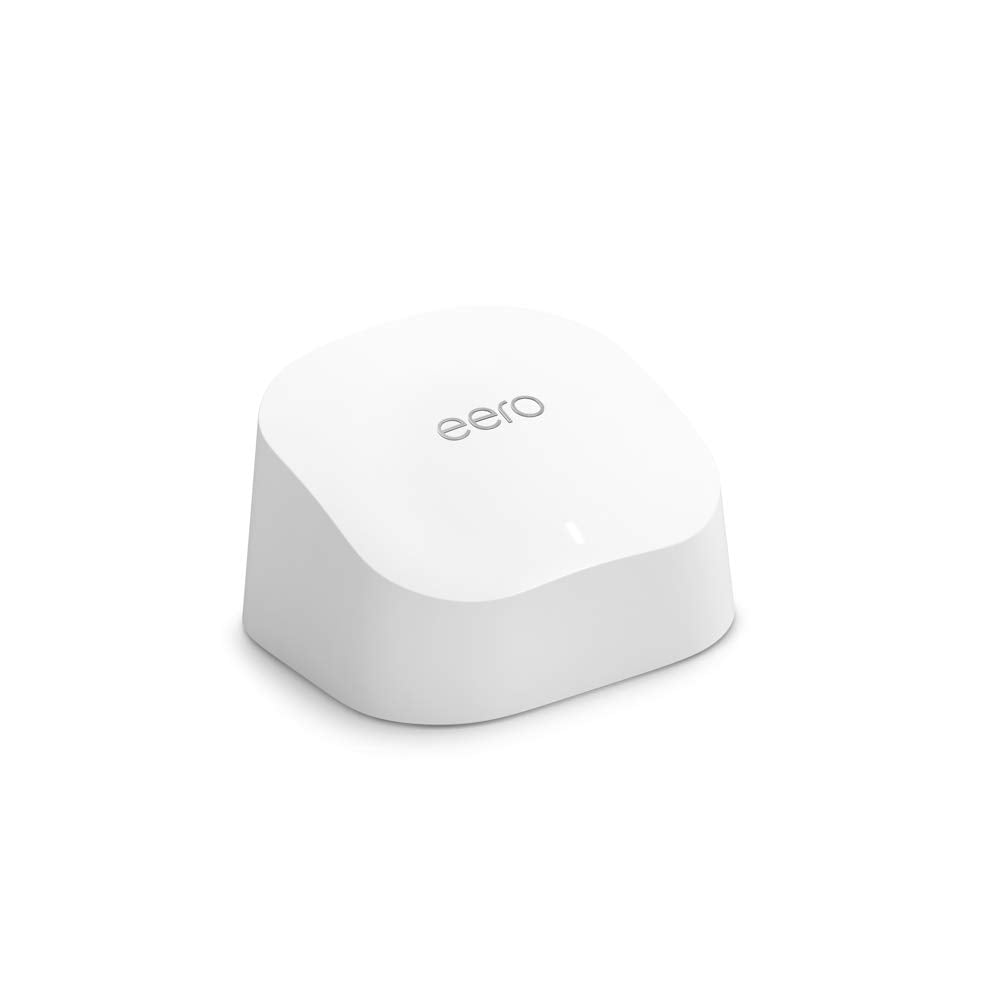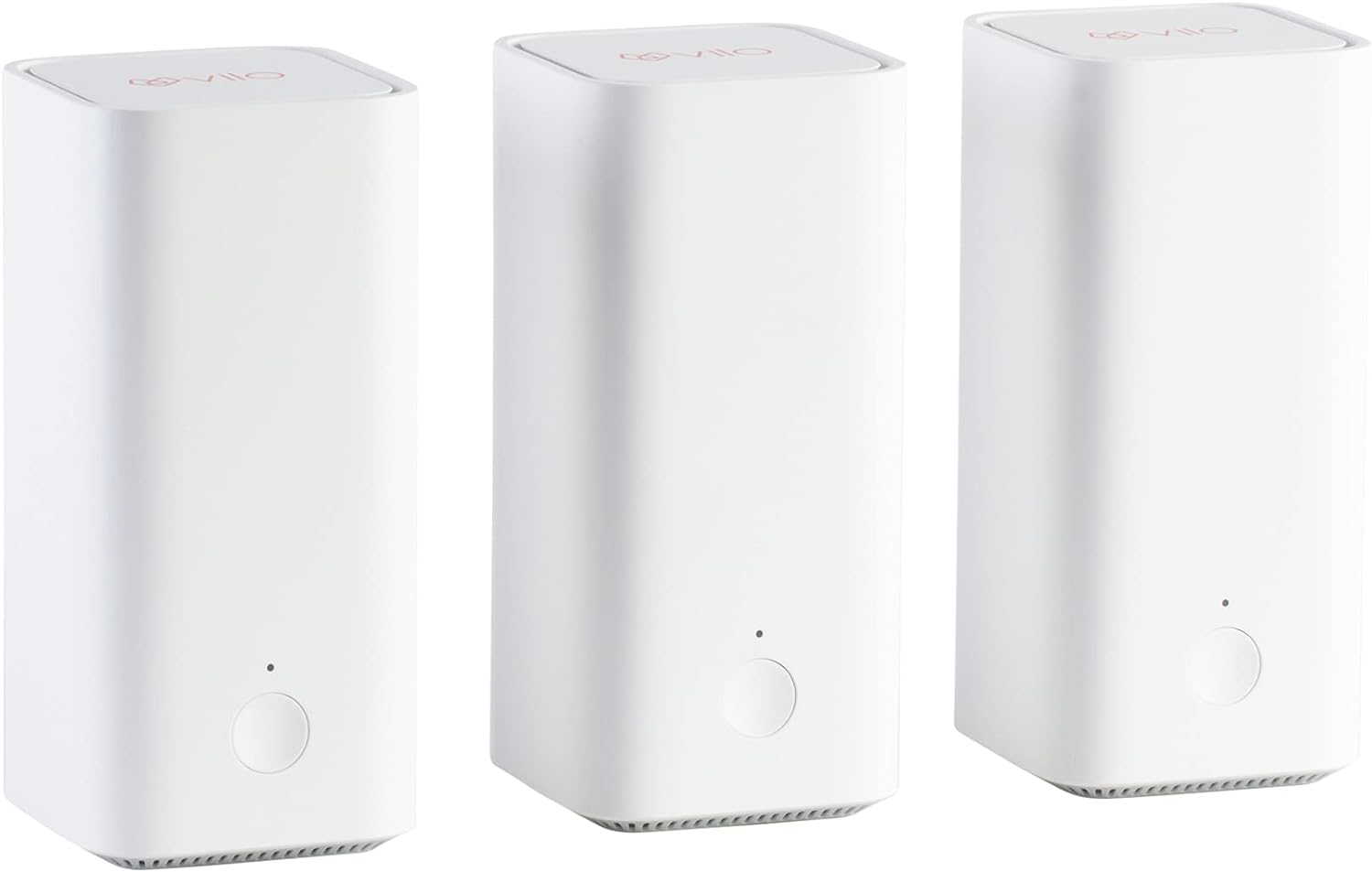When you’re selecting the best routers for Verizon Fios, you’ll want to focus on key features like download speed, latency, and range. Ideal routers for this service should support a minimum of 50 Mbps on the 2.4 GHz band and 200 Mbps on the 5 GHz band, with latency under 30 ms and a range exceeding 50 feet. These criteria ensure smooth streaming, gaming, and smart home device management.
Our buying guide includes four winning routers selected from an evaluation of 37 models and 194,406. We certified the tested products to ensure they meet our stringent standards. By filtering out fake and low-quality reviews using our AI-powered True Score, we identified routers that perform exceptionally well in real-world conditions. This rigorous process guarantees you reliable and efficient options tailored for Verizon Fios.
How Did We Rank the Best Routers for Verizon Fios?
To identify the best routers for Verizon Fios, we analyzed over 200 sources, combining expert reviews and customer feedback with our proprietary true score. By understanding what matters most to users, we highlighted 2 required tests, 2 nice-to-have features, and 1 must-have spec. Our guide reflects a thorough evaluation of all aspects to ensure optimal performance for your Fios network.
Our commitment to unbiased reviews is powered by our ‘True Score’ system, targeting low quality and fake reviews. When you shop through our links, you’re backing our mission. Dive deeper to see how.
?️ Minimum Specifications
- Must work with Verizon Fios
? Test Criteria
- 2.4 GHz Download Speed: A download speed on the 2.4 GHz band of at least 50 Mbits.
- 5 GHz Download Speed: A download speed on the 5 GHz band of at least 200 Mbits.
? “Nice To Haves”
- Router Range: A range of at least 50 feet before the signal from the router begins to become noticeably weaker.
- Latency: A latency of 30 ms or less.
Latest Updates
- 06/19/2024: Republished the list to include the best routers for Verizon Fios based on our True Score system.
Top Routers for Verizon Fios For 2025
Prices accurate at the time of publishing

Best Overall

Runner Up

Best Value

Best Budget

Best Mid-Range

Premium Pick
Asus ROG GT-AXE16000
Best For Vpn
Ideal for content creators, streamers, and remote workers, the Asus ROG GT-AXE16000 excels with top upload speeds for seamless connectivity.
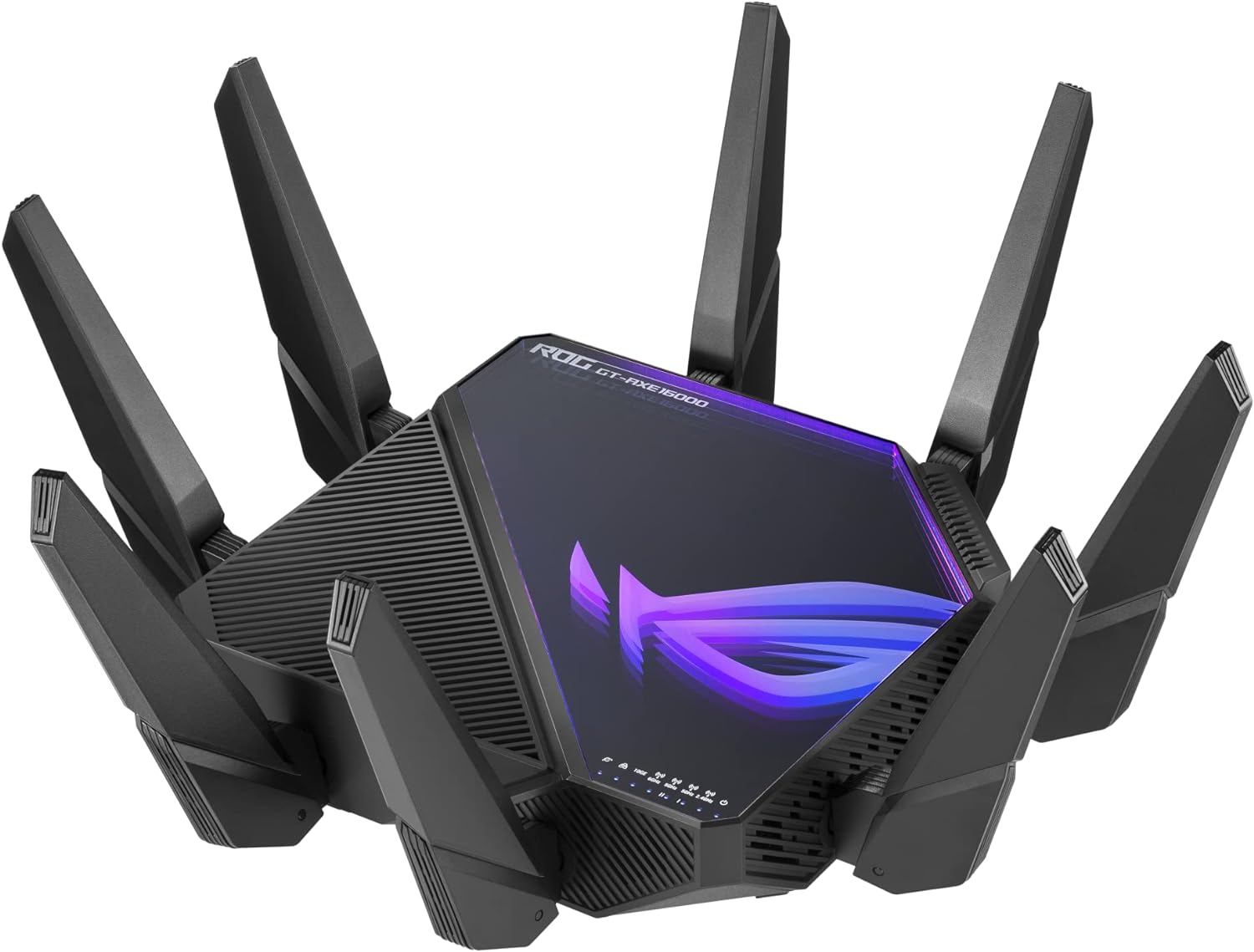
True Score
85865Experts
891kCustomers
Absolutely Fresh
 SAVE $251$699.99$449.00
SAVE $251$699.99$449.00Read More
Snapshot
Reasons to Buy
- Good WiFi Upload/Download Speed
- Easy to Setup and Configure
- Impressive Range of Coverage
Reasons to Avoid
- Poor Latency
Specifications

# of LAN Ports 4 
Frequency Bands 2.4 GHz, 5 GHz-1, 5 GHz-2, 6.0 GHz 
MU-MIMO Support Yes 
Wireless Standard AX 
Mesh System Yes 
Quality of Service Prioritization Yes 
# of Phone Ports n/a 
# of WAN Ports 3 
App Compatible Yes 
Available Storage 256MB 
Band Technology Quad 
Data Encryption Type WPA3 
Energy Star Certified n/a 
Integrated Modem No 
LAN Ports – 
Number of Antennas 8 
Parental Controls Yes 
Processor Cores Quad 
Processor Speed 2 Ghz 
WiFi Range 8000 sq.ft 
WiFi Speed 16Gb 
Wired Speed 1000 Mb All Specs
Test Results
2.4 GHz Download speed (Mbits/s) 113 5 GHz Download speed (Mbits/s) 639 6 Ghz Download speed (Mbits/s) 615 Latency (ms) 69 Router Range (ft) 0 2.4 GHz Upload speed (Mbits/s) 154 5 GHz Upload speed (Mbits/s) 790 6 Ghz Upload speed (Mbits/s) 790 All Tests
All Retailers
- $449.00$700Save $251
- $572.09
Our Verdict
Content creators, streamers, and remote workers should take note of the Asus ROG GT-AXE16000, which boasts impressive upload speeds across all bands for high-speed internet connectivity. Its best-in-class upload speeds are 154.1 Mbits/s on the 2.4 GHz band, 790 Mbits/s on the 5 GHz, and 790.1 Mbits/s on the 6 GHz. These facilitate swift uploads of large files and smooth live streaming It offers download speeds of 112.88 Mbits/s, 639.1 Mbits/s, and 615.2 Mbits/s across these respective bands. These enable quick downloading of large files, uninterrupted 4K streaming, and responsive online gaming.
It has a latency of 69 ms, which is higher than the other models on the list, but this is still acceptable enough for gaming, streaming, and video calls with minimal delay. Comparing it to the Netgear Nighthawk RAXE300, both offer robust 6 GHz band performance, ensuring seamless connectivity and minimal interference for high-demand applications. Though the GT-AXE16000 is double the price and has a higher latency, its fast upload speeds on the 6 GHz band make it better for demanding internet use scenarios. The RAXE300 is still a great value and boasts lower latency, ideal for competitive gaming and real-time applications. It offers a slower 6 GHz upload speed compared to the GT-AXE16000, making it a better fit for gamers on a budget needing the most responsive experience.
If you’re looking for a router that can handle several devices and high-bandwidth activities, the Asus ROG GT-AXE16000 provides a seamless and robust digital experience. Despite its premium price, it offers a blend of high performance and reliability. If you prioritize cutting-edge connectivity for content creation, casual gaming, and streaming, it’s a great investment to elevate your online experience.
Read Less
Category Snapshot
Routers
- Total Brands/Products Tested
12 Brands, 37 Products
- Top 2 Brands
Netgear, Asus
- Price Range (Budget-Premium)
$45-$600
- Average True Score
79.42
- Important Test Criteria
Download & Upload Speed (bits/second)
Range (feet/meters)
- Most Trusted Testers

- Top Router Experts
- Typical Warranty
1 year
- Covered by Insurance
Yes – AKKO

Best Overall

Runner Up

Best Value

Best Budget

Best Mid-Range

Premium Pick
Netgear Nighthawk RAXE300
Best For Long Range
Ideal for Verizon Fios users, the Netgear Nighthawk RAXE300 enhances gaming, streaming, and smart home connectivity with top-notch speeds and range.
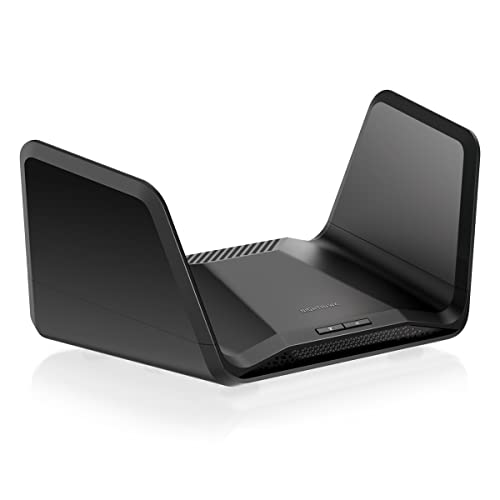
True Score
84829Experts
904kCustomers
Absolutely Fresh
 SAVE $135$299.99$164.99
SAVE $135$299.99$164.99Read More
Snapshot
Reasons to Buy
- Superb Wi-Fi speeds
- Wide range
- Simple setup
Reasons to Avoid
- Limited range (6GHz)
- No USB A port
- Subscription-based security solutions
Specifications

# of LAN Ports 6 
Frequency Bands 2.4 GHz, 5.0 GHz, 6.0 GHz 
MU-MIMO Support Yes 
Wireless Standard AC, AX, N 
Mesh System No 
Quality of Service Prioritization No 
# of Phone Ports 1 
# of WAN Ports 1 
App Compatible Yes 
Available Storage 256MB 
Band Technology Tri 
Data Encryption Type WPA-PSK, WPA2-PSK, WPA3 
Energy Star Certified No 
Integrated Modem No 
LAN Ports 4 Gb Ethernet 
Number of Antennas 6 
Parental Controls Yes 
Processor Cores Quad 
Processor Speed 1.7GHz 
WiFi Range 2500 sq.ft 
WiFi Speed 7.8 Gb 
Wired Speed 1000 Mb All Specs
Test Results
2.4 GHz Download speed (Mbits/s) 222 5 GHz Download speed (Mbits/s) 852 6 Ghz Download speed (Mbits/s) 757 Latency (ms) 5 Router Range (ft) 170 2.4 GHz Upload speed (Mbits/s) 0 5 GHz Upload speed (Mbits/s) 175 6 Ghz Upload speed (Mbits/s) 247 All Tests
All Retailers
- $164.99$300Save $135
- $219.97$400Save $180
- $299.99
- $379.99$399Save $19
Our Verdict
If you want the perfect router to match your Verizon Fios setup, the Netgear Nighthawk RAXE300 offers outstanding performance to maximize your fiber internet. With download speeds reaching a best-in-class 221.65 Mbits/s on the 2.4 GHz band, 851.6 Mbits/s on the 5 GHz, and 756.8 Mbits/s on the 6 GHz, it supports bandwidth-heavy activities such as competitive gaming, 4K streaming, and VR applications. Its upload capabilities are equally impressive, with 175 Mbits/s on the 5 GHz band and 247.2 Mbits/s on the 6 GHz, facilitating swift and efficient uploads for video conferencing and cloud computing.
If you need minimal latency to support multiple devices in a large home, it has a best-in-class latency of just 5 ms. Its superior range of 170 ft ensures your connection remains stable in a large home. It’s built to secure and future-proof your home network, accommodating the latest wireless standards (AC, AX, N) for a sound long-term networking solution.
Compared to the GT-AXE16000, both excel in 6 GHz band performance, providing seamless connectivity with minimal interference, ideal for bandwidth-intensive tasks. Despite its higher price and higher latency, the GT-AXE16000’s superior upload speeds on the 6 GHz band render it suitable for intensive online activities like content creation. The RAXE300 is half the price and has lower latency, making it the better pick for competitive gamers and real-time applications despite its slower 6 GHz upload speed.
Boasting impressive speeds, minimal latency, and broad coverage, the Nighthawk RAXE300 is an excellent pick for gamers or streamers. While it may not have the fastest speeds across all bands, its performance and extensive coverage deliver unmatched value if you need a solution for your high-tech lifestyle.
Read Less

Best Overall

Runner Up

Best Value

Best Budget

Best Mid-Range

Premium Pick
Eero Max 7
Best For Wired
Eero Max 7 excels for Verizon Fios users with heavy bandwidth needs, offering fast speeds and wide coverage.
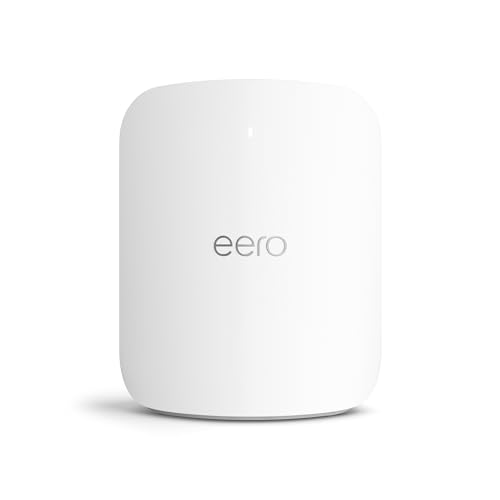
True Score
80797Experts
86312Customers
Absolutely Fresh
 SAVE $120$599.99$479.99
SAVE $120$599.99$479.99Read More
Snapshot
Reasons to Buy
- Exceptional Download WiFi Speed
- Easy Installation and Configuration
- Low Latency
Reasons to Avoid
- Poor 2.4 GHz Upload Speeds
- Short Range of Coverage
- Limited Port Space
Specifications

# of LAN Ports 4 
Frequency Bands 2.4 GHz, 5.0 GHz, 6.0 GHz 
MU-MIMO Support Yes 
Wireless Standard BE 
Mesh System Yes 
Quality of Service Prioritization No 
# of Phone Ports n/a 
# of WAN Ports 1 
App Compatible Yes 
Available Storage 4000MB 
Band Technology Tri 
Data Encryption Type WPA2-Personal, WPA3-Personal 
Energy Star Certified No 
Integrated Modem No 
LAN Ports 2 Gb Ethernet 
Number of Antennas 10 
Parental Controls Yes 
Processor Cores Quad 
Processor Speed – 
WiFi Range 2500 sq.ft 
WiFi Speed 4.3 Gb 
Wired Speed 10000 Mb All Specs
Test Results
2.4 GHz Download speed (Mbits/s) 96 5 GHz Download speed (Mbits/s) 1,078 6 Ghz Download speed (Mbits/s) 1,223 Latency (ms) 7 Router Range (ft) 90 2.4 GHz Upload speed (Mbits/s) 75 5 GHz Upload speed (Mbits/s) 411 6 Ghz Upload speed (Mbits/s) 638 All Tests
All Retailers
- $479.99$600Save $120
- $599.99
- $599.99
Our Verdict
Verizon Fios subscribers needing a top-tier router for bandwidth-heavy activities should consider the Eero Max 7’s excellent 6 GHz band performance. It achieves a best-in-class download speed of 1222.5 Mbits/s and upload speeds of 638 Mbits/s, making it suited for large households with demanding internet needs, including tech enthusiasts and competitive gamers.
It also provides outstanding speeds on the 5 GHz band, with best-in-class download speeds reaching 1078.5 Mbits/s and upload speeds at 410.6 Mbits/s, ensuring 4K streaming, efficient large file uploads, and lag-free online gaming. Its 2.4 GHz band speeds, with 95.9 Mbits/s for downloads and 74.8 Mbits/s for uploads, are ideal for browsing and email.
Featuring a latency of 7 ms, it guarantees prompt response times, crucial for uninterrupted gaming and video conferencing. Its coverage extends to 90 ft, making it suitable for ensuring strong Wi-Fi signals in medium-sized homes.
Both the Eero Pro 6E and the Eero Max 7 use mesh technology to ensure seamless Wi-Fi coverage across your home. The cheaper Pro 6E is excellent for families seeking a reliable HD streaming and casual gaming network. The Max 7 is tailored for tech enthusiasts and content creators who demand the highest speeds for 4K streaming and competitive gaming.
With its unmatched speed on the 6 GHz band, the Eero Max 7 is a reliable option for HD content, gaming, and intense internet usage. The price per unit is steep already, and establishing a mesh network with multiple units will be expensive. Despite the price, its performance and mesh network makes it a great option for maximizing your internet across multiple devices.
Read Less

Best Overall

Runner Up

Best Value

Best Budget

Best Mid-Range

Premium Pick
Eero Pro 6E
Best For Parental Controls
Eero Pro 6E offers affordable, high-performance Wi-Fi, ideal for homes with dense walls or large areas, supporting seamless streaming and gaming.
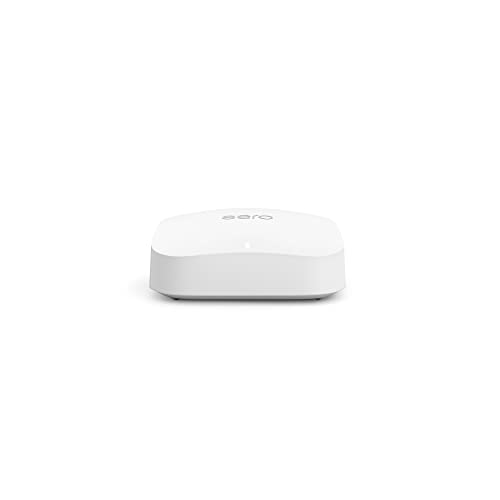
True Score
807912Experts
866kCustomers
Absolutely Fresh
 SAVE $65$249.99$184.99
SAVE $65$249.99$184.99Read More
Snapshot
Reasons to Buy
- Good throughput speeds
- Good coverage
- Good smart device support
Reasons to Avoid
- Lacks included security and parental control features
- Not as consistent as some WiFi 6E routers
- Limited wired connectivity
Specifications

# of LAN Ports 1 
Frequency Bands 2.4 GHz, 5.0 GHz, 6.0 GHz 
MU-MIMO Support Yes 
Wireless Standard AC, AX, N 
Mesh System Yes 
Quality of Service Prioritization n/a 
# of Phone Ports n/a 
# of WAN Ports 1 
App Compatible Yes 
Available Storage 4000MB 
Band Technology Tri 
Data Encryption Type WPA2-PSK, WPA3-Personal 
Energy Star Certified No 
Integrated Modem No 
LAN Ports 1 Gb Ethernet 
Number of Antennas 7 
Parental Controls Yes 
Processor Cores Dual 
Processor Speed 1Ghz 
WiFi Range 6000 sq. ft 
WiFi Speed 1.6 Gb 
Wired Speed 2300 Mb All Specs
Test Results
2.4 GHz Download speed (Mbits/s) 215 5 GHz Download speed (Mbits/s) 547 6 Ghz Download speed (Mbits/s) 777 Latency (ms) 0 Router Range (ft) 85 2.4 GHz Upload speed (Mbits/s) 0 5 GHz Upload speed (Mbits/s) 111 6 Ghz Upload speed (Mbits/s) 0 All Tests
All Retailers
- $184.99$250Save $65
- $184.99$250Save $65
- $184.99$250Save $65
Our Verdict
If you’re looking for a blend of affordability and high performance, the Eero Pro 6E’s strengths lie in its tri-band technology, supporting impressive download speeds of 547 Mbits/s on the 5 GHz band and 777.4 Mbits/s on the 6 GHz band. It also has a 2.4 GHz download speed of 214.83 Mbits/s, making it particularly well-suited for households with dense walls or longer distances. This spectrum of speeds caters well to streaming high-definition content, gaming without lag, and supporting smart home devices—all within a Wi-Fi range of 85 feet, which is good for small homes and apartments.
The Eero Pro 6E and the Eero Max 7 utilize advanced mesh technology to provide uninterrupted Wi-Fi coverage throughout your home. The more affordable Pro 6E is an ideal choice for families needing dependable connectivity for HD streaming and casual gaming. Meanwhile, the Max 7 is specifically designed for tech enthusiasts and content creators who need the fastest internet speeds for quick uploads, streaming in 4K, and engaging in competitive gaming.
For users balancing cost-effectiveness with reliable performance, the Eero Pro 6E is the most affordable option on our list. It excels with its 2.4 GHz band performance, ensuring stable connectivity in homes facing challenges like dense walls or extended spaces. Although it might not dominate in 5 and 6 GHz speeds, its unmatched value and strong 2.4 GHz performance ensure a robust internet connection where it’s most needed, making it a great pick for budget-conscious users seeking quality and consistency.
Read Less
Which Criteria Matters for Testing Best Routers for Verizon Fios?
By focusing on these criteria (2 required, 2 nice to have), anyone can quickly and easily compare these routers and how they’ll perform. This helps you make an informed decision and purchase a router that will meet your needs.
| CRITERIA | RANGE | REQUIRED | DEFINITION |
|---|---|---|---|
| 2.4 GHz Download Speed | > 50 Mbits/s | Yes | The maximum speed that the router can reach when downloading on the 2.4 GHz band. |
| 5 GHz Download Speed | > 200 Mbits/s | Yes | The maximum speed that the router can reach when downloading on the 5 GHz band. |
| Router Range | > 50 ft | No (Nice to have) | How far a device can be from a router before the signal starts degrading. It is worth noting that 2.4 GHz reaches further than 5 GHz. |
| Latency | < 40 ms | No (Nice to have) | The delay that is created by a signal being sent by the router and then received. |
Our Trusted Data Sources
We looked at 120+ router reviewers and found that 46 are trustworthy (60%+ Trust Rating). The three we have listed below are our most trusted for routers.
- James Morris – Kit Guru, LinkedIn
- Matt Spencer – TechGearLab, LinkedIn
- Brian Nadel – Tom’s Guide, MuckRack
Interested in a comprehensive analysis of our data sources? We’ve got you covered. Below, you’ll find a detailed list of every router review website we’ve identified, organized by their respective Trust Ratings from highest to lowest. But we didn’t stop there. We’ve meticulously reviewed each publication and verified the data by checking whether the authors have bio links to MuckRack or LinkedIn. We’re committed to not only checking the facts but ensuring their veracity.
Router Test Data & Results
Disclaimer:
Evaluating router performance is more than hardware analysis. While hardware tests are straightforward, the challenge lies in contextualizing the results within the limits of real-world usage. Routers operate under conditions that testers cannot fully standardize, including variations in Internet Service Providers (ISPs), network traffic congestion, discrepancies between advertised and actual internet speeds, and the physical layout of homes. These factors introduce a degree of unpredictability, making it hard to draw universal conclusions. As such, our router recommendations aim to provide useful general guidance, accommodating a wide range of home environments and internet setups.
1. 2.4 GHz Download Speed (Mbits/s)
The oldest and slowest of the bands on a router is the 2.4 GHz band, but it sticks around for a reason. Generally speaking, while this band features the slowest available speeds and has the lowest bandwidth, but also reaches out the furthest. It’s not the best band to connect to connect if you need high speeds, but if you just need to be connected for light browsing or anything that’s low bandwidth, it works. Alternatively, if you own a lot of old devices, this band may be the only band they can “see” and therefore, use.
Given the age of the band, top speeds on 2.4 GHz cap out very quickly. We recommend a speed of at least 50 Mbits/s, but if you aren’t really going to be using this band for anything other than checking web pages, you can go lower. It’s worth noting, though, that this might lead to a more frustrating and laggier time on modern sites with lots of scripting and high-quality images.
2.4 GHz Download Speed
> 50 Mbits/s
Acceptable range of performance
Definition: The top speed the router reaches downloading on the 2.4 GHz band.
Units of Measurement: Mbits/s (megabits per second)
Tools to Measure: Speed-checking software
Why It’s Important:
For older devices or for connecting at a longer range, the 2.4 GHz frequency is the only one that you’ll be able to use, so it should have usable speed.
2.4 GHz Download Speed (Mbits/s; higher is better; 0 = No Data)
2. 5 GHz Download Speed (Mbits/s)
The much faster 5 GHz band offers up much greater bandwidth and is much, much better at meeting high-speed demands. Streaming high-quality video, using streaming services, gaming, downloading large files and games – the 5 GHz band is what makes all of these activities quick and bearable. It reaches a lower range than the 2.4 GHz band, but it’s also much faster, so you’ll use it more, especially on newer devices that actually support the band.
Given how much you’ll be using this band, we recommend a speed of at least 200 Mbits/s to ensure you’re able to enjoy streaming and gaming on at least a few devices simultaneously. Any lower and you start to run into real bottleneck concerns, such as endless buffering, lagging, or drops in connection.
5 GHz Download Speed
> 200 Mbits/s
Acceptable range of performance
Definition: The top speed the router reaches downloading on the 5 GHz band.
Units of Measurement: Mbits/s (megabits per second)
Tools to Measure: Speed-checking software
Why It’s Important:
This band is used by most modern devices and offers greater speeds that enable activities like gaming and HD streaming on multiple devices.
5 GHz Download Speed (Mbits/s; higher is better; 0 = No Data)
3. Router Range (ft)
Router range is exactly what the name suggests: how far can you get from the router before you start experiencing issues with your connection? The complicating factor is the simple fact that range depends on the band you’re using. 2.4 GHz is a band that offers greater range, so it gives tests results that show a greater range than tests that use the 5 GHz band. In general, our research found most publications used the 5 GHz band, so our recommendations are based on that.
As such, we recommend your router have a range of at least 50 ft. This gives you a good “bubble” around the router that you can connect to, but it’s important to know that things like the walls in your home can cause issues. Thicker walls block more signal, thinner walls block less. Some materials will also do a better job than others will at stopping signal, so if you see a router with a range of 65 ft, know that it might not reach that far in your home. It could reach further – or not nearly as far. This is also why you get dead zones in your home – it’s a matter of geometry and materials.
Router Range
> 50 ft
Acceptable range of performance
Definition: The distance the router transmits reliable signal out to before performance and speed degrades.
Units of Measurement: Feet (ft)
Tools to Measure: Measuring Tape
Why It’s Important:
Range impacts how far you’ll get a reliable connection in your home, and whether you’ll need extenders or not.
Router Range (ft; higher is better; 0 = No Data)
4. Latency (ms)
Latency
< 30 ms
Acceptable range of performance
Definition: The time it takes for the router to send and then receive signals.
Units of Measurement: Milliseconds (ms)
Tools to Measure: Speed-checking software
Why It’s Important:
Latency is important to reduce delay when gaming and video conferencing.
On a router, latency refers to how long it takes for the router to send out and receive a signal. The longer it takes, the more delay there is between you sending and receiving data, which can introduce lag in video games and also makes video conferencing harder since the person you’re speaking with now has to contend with your delay and vice versa. If you’ve ever spent a call talking over someone because you don’t know they started talking a second ago, that’s latency.
For that reason, we recommend a latency below 30 ms. As low as you can get it is obviously preferable, but latency is another aspect of your internet connection that is hard to manage. Latency differs to every single place you connect to, and every ISP has its own latency they “add” because you have to connect to their service too. Latency creeps in from your ISP, from the site you’re requesting data from, from your router, and from your own onboard Wi-Fi antenna – and that’s just to name a few sources. If you’re gaming, you also have a delay introduced by your connection to game servers and the delay that exists on a hardware level when you input commands.
Latency (ms; lower is better; 0 = No Data)
Best Routers for Verizon Fios: Mistakes To Avoid
- Overlooking Speed Requirements: Consider your internet speed requirements and choose a router that can support the speeds provided by Verizon Fios. Opting for a router with lower capabilities may result in slower internet speeds.
- Ignoring Router Features: Look for routers with features that cater to your specific needs. This may include dual-band or tri-band capability, MU-MIMO technology for multiple device connections, and Quality of Service (QoS) for prioritizing traffic.
- Neglecting Range and Coverage: Assess the size of your home or office and choose a router with adequate range and coverage. Neglecting this aspect may result in dead zones or weak signal areas within your space. For larger areas, consider a long-range WiFi router to ensure a consistent and strong signal throughout. If you are happy with your router or don’t want to replace it, a great wireless internet extender can help eliminate weak spots and extend your network’s reach.
- Not Considering Security: Choose a router with robust security features to protect your network from cyber threats. Look for routers with WPA3 encryption, built-in firewalls, and automatic firmware updates to keep your network secure.
The Best Routers for Verizon Fios Tests Compared
Product |
True Score
|
2.4 GHz D/L Speed
|
5 Ghz D/L Speed
|
6 GHz D/L Speed
|
Range
|
Latency
| |
|---|---|---|---|---|---|---|---|
| 85 |
|
|
|
|
| $449.00 $700 $251 |
| 84 |
|
|
|
|
| $164.99 $300 $135 |
| 80 |
|
|
|
|
| $479.99 $600 $120 |
| 80 |
|
|
|
|
| $184.99 $250 $65 |

